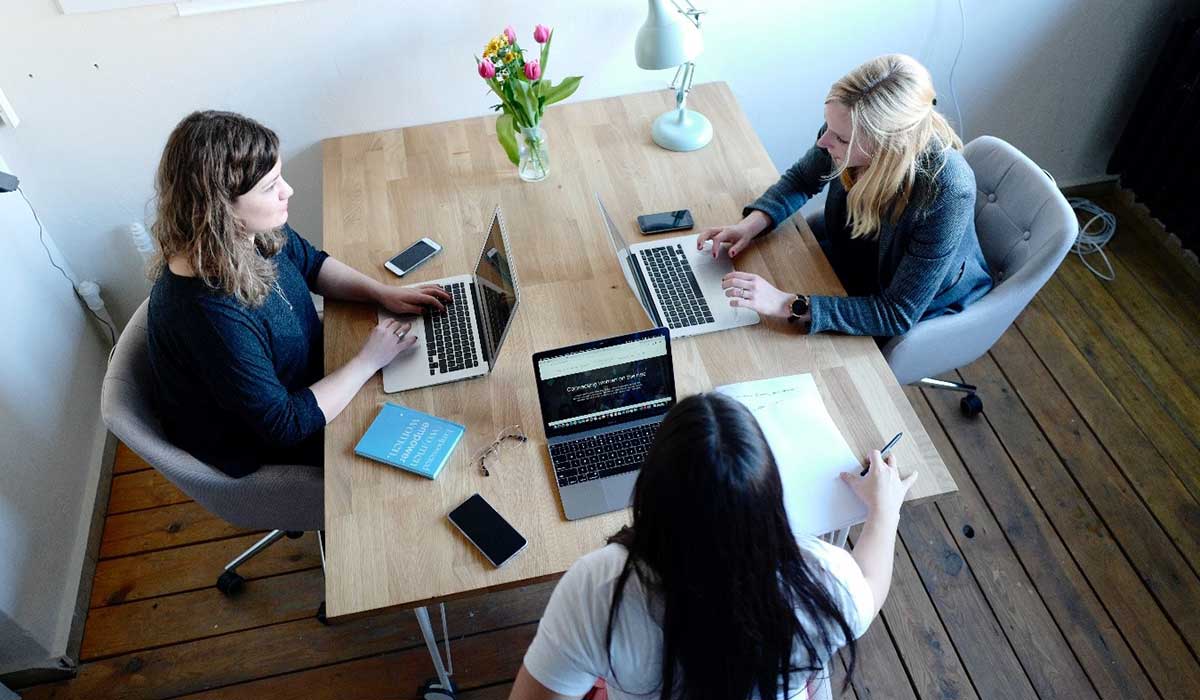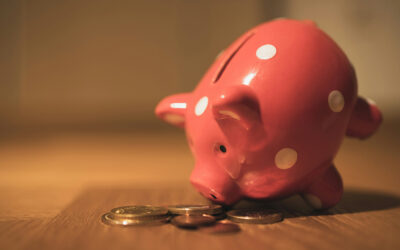Procrastination:
Why Do We Do It, And Can It Actually Boost Your Productivity?

Emma Bowdler
I’m a cheerleader for women and an accountant bursting with personality.
Dragging our heels, sneakers or even our slippers – don’t worry, we all do it. TBH – we even did it writing this article! But why do we procrastinate, and can it actually be a useful part of our process? Here are five ways to turn your procrastination into greater productivity, so you can stay on top of your business’s day-to-day (or tomorrow as the case may be!).
We’ve talked before about the perils of this era of instant gratification and constant notifications, where it can often feel like it’s just one ‘ping’ after another, and one thing that this overly-stimulated world makes easy is for us to slip into a cycle of procrastination. Whether it’s procrasticleaning, procrastibaking or even ‘procrastibookkeeping’ (we’re accountants, we get it!), the act of delaying or postponing the things on your ‘to-do’ list, even though they might come back to bite you in the arse later, certainly happens to the best of us. Or does it?
Are We All Procrastinators?
Remember that kid who was far more interested in shiny objects outside their bedroom window than doing their homework? Or what about the kid who always bargains with you when it comes to chore-time, saying they’re ‘gunna, gunna, gunna’ do it later? Then it might not surprise you to learn that studies have found that procrastination occurs more frequently in younger people (14-29). The good news is that, as we get older, we get much better at fighting off the procrastination demons. The bad news is that it will probably never leave you entirely. In fact, a 2015 survey found that, on average, an adult ‘loses’ over 55 days a year procrastinating, or around 218 minutes every day. That’s a lot of time! So, what is really going on here?
“What do your 3pm fridge raid and perfectly alphabetised bookshelf have in common? You most likely did both of them when you should have been doing work.”
The Real Reasons We Put Important Stuff Off!
We humans are complex creatures and, as such, there are a wide range of reasons that may cause us to procrastinate. When we are young, different things influence and motivate our decision-making. Remember when the threat of not being allowed to go to a birthday party directly influenced our ability to do simple tasks? That’s because, in children, lower levels of conscientiousness will facilitate decision making that supports procrastination-like behaviour. This phenomenon decreases as we get older and become more aware of our influence on other people’s lives, and our own. As adults, there are often more complex drivers for procrastination, such as:
- High levels of perceived stress
- Depression
- Anxiety
- Fatigue
- Reduced life satisfaction across a whole range of domains including work and leisure time
- Age
- Lack of partnership
- Unemployment
So basically, just living our normal stressful lives gives all of us a good reason to put things off. But, is procrastination always a bad thing?
“Never put off till tomorrow what may be done the day after tomorrow just as well.”
― Mark Twain
Can Procrastination Actually Improve Productivity?
Think back to a time when there was a simple task around the home that you off continuously, only to be forced to do it quickly down the track due to time pressure. And did you find that this newfound time pressure drove you to complete the job faster and more efficiently? Tidying the house before someone comes to visit comes to mind – there’s no quicker cleaning service in the world! Or perhaps it’s completing your tax return or business strategy when you have a deadline, as opposed to ‘one day soon’. Using procrastination to temporarily relieve stress and in order to better focus on a task later on, can boost productivity but sometimes we end up spending more time worrying about the thing than actually doing the thing. So, what are the different types of procrastination and which is better for our productivity in the long run?
“A day can really slip by when you’re deliberately avoiding what you’re supposed to do.”
― Bill Watterson
Active Vs Passive Procrastination
Procrastination itself isn’t inherently ‘good’ or ‘bad’, instead it all comes down to the individual’s style of procrastination. Let’s start with active versus passive procrastination.
“Active procrastination can be thought of as productive procrastination, whereas passive procrastination can be thought of as unproductive procrastination.”
Passive procrastinators are those who do not aim to procrastinate, but they often end up delaying tasks because they have a hard time making decisions quickly, and thereby acting on them quickly. Active procrastinators, on the other hand, can act on their decisions quickly but, they delay them deliberately focus their attention on other important tasks at hand.
When that deadline finally comes around, a passive procrastinator will likely feel stressed and become pessimistic, particularly about their ability to get the job done. An active procrastinator, on the other hand, uses that same pressure to galvanise their mental strength and self-belief to get the job done.
“Therefore, active procrastination is the desired state for most, if not all of us.”
To reiterate, active procrastinators will generally exhibit four key behavioural traits:
- A preference for time pressure.
- Intentional decisions to put tasks off.
- Ability to meet deadlines.
- Outcome satisfaction for this style of pressured work.
As you can see, procrastination looks different for different people, and it can become even murkier in business when you start to combine teams of people with different procrastination styles and psychological traits.
“Only put off until tomorrow what you are willing to die having left undone.”
― Pablo Picasso
How Teamwork Affects Procrastination
The last procrastination/productivity moderator we are going to cover in this piece is that of teamwork. The good news is studies have shown that teamwork can be effective at curbing even passive procrastinators, especially when the team is culturally diverse. Many hands make lighter work of course, but no one likes letting a teammate down – and that can be a powerful motivator.
If you’re naturally a passive procrastinator (by the way that’s about 20% of people) , you’re not alone and you’re not ‘stuck’ that way forever.
- Identify what kind of procrastinator you naturally are, active or passive. We are steeling this one from AA. The first step towards helping your problem, is admitting that you might have one, right?
- Take steps to ensure the teams of people around you in both your personal and business lives are set up to hold you accountable. For you sole traders out there, creating physical to-do lists or vision boards is a great way to help you increase your accountability. Though we always advise against truly going at it alone!
- The organisation of tasks for best productivity has two main schools of thought, we are leaving it up to you to decide what is best.
- The first school of thought is to organise your tasks so that the quickest and easiest to complete are first on the list. Think instant gratification and building momentum as you go.
- The second school of thought is to eat the frog first. No, we don’t literally mean to go and eat frogs…We mean to tackle the least favourable but most important/necessary task on your list first. Supposedly, the completion of the “worst” task on your list will allow you be happier in completing the other tasks by comparison.
- Using specific dates to mark deadlines (not using days, weeks, months, etc) is an effective way to avoid passive procrastination.
- Give yourself a break! We often self-report much higher levels of procrastination than what is reality.
“Procrastination is like a credit card: it’s a lot of fun until you get the bill.”
― Christopher Parker
So, there you have It. Seems no matter how good your ability to manage procrastination is, we all fall victim to the procrastination demons from time to time. It is up to the individual, however, to decide on whether to be an active or passive procrastinator. With purposeful practice and greater self-awareness even the most passive of procrastinators can learn to be active. Or should we say learn to productively procrastinate! Speaking of, you should probably get back to work 😉.
Struggling For Momentum? If You’re Doing Any of These, *You* Might Be the One Holding Your Business Back
Struggling For Momentum? If You’re Doing Any of These, *You* Might Be the One Holding Your Business Back Five self-sabotaging mindsets and behaviours preventing business owners from achieving profitability, sustainability and impact (and what to do instead). Emma...
Are You Growing Broke? Why Scaling Your Business Might Be Shrinking Your Profits (and What to Do About It)
Are You Growing Broke? Why Scaling Your Business Might Be Shrinking Your Profits (and What to Do About It)The sneaky trap where revenue rises but margins disappear. Here’s how to protect your profits and your peace before you get yo’self into a financial pickle. Emma...
Stop Making These Tax Time Mistakes (and What to Do Instead)
Stop Making TheseTax Time Mistakes(and What toDo Instead) You work too hard to let tax time drain your energy (or your bank account). Avoid these common business tax mistakes before you leave more money on the table. Emma BowdlerI’m a cheerleader for women and an...







